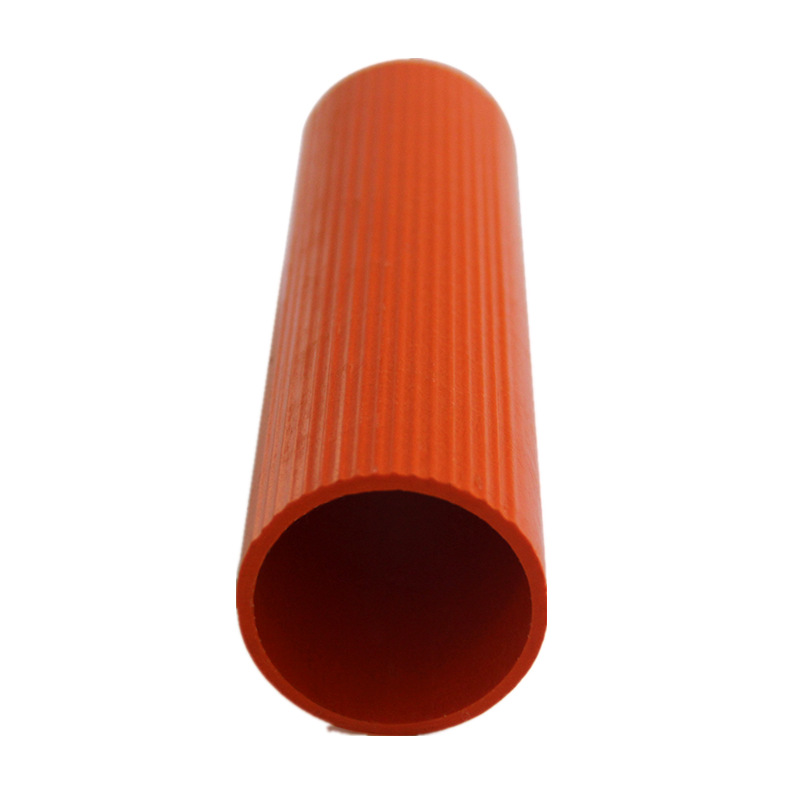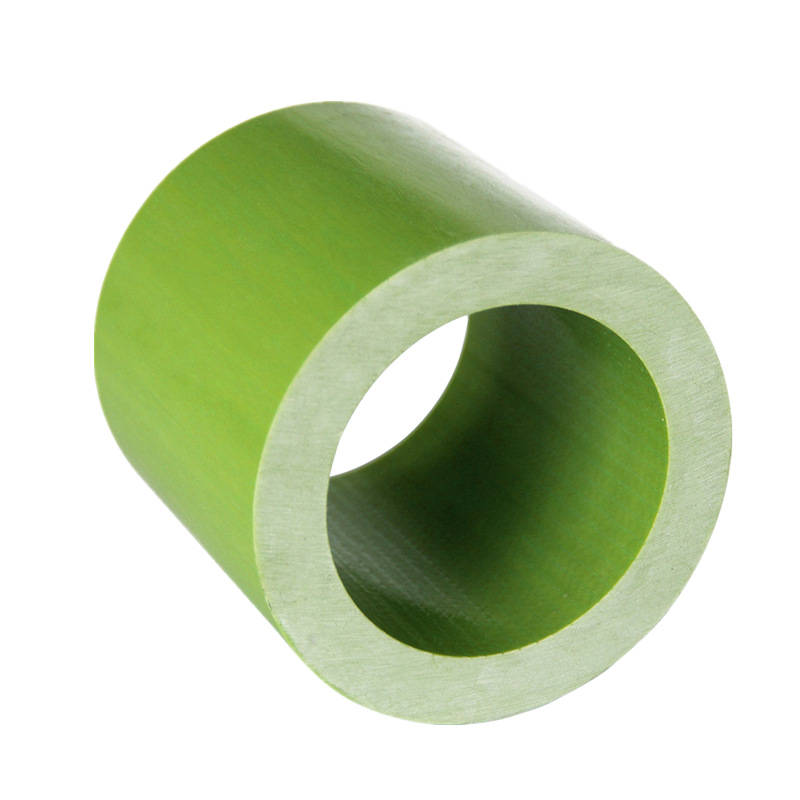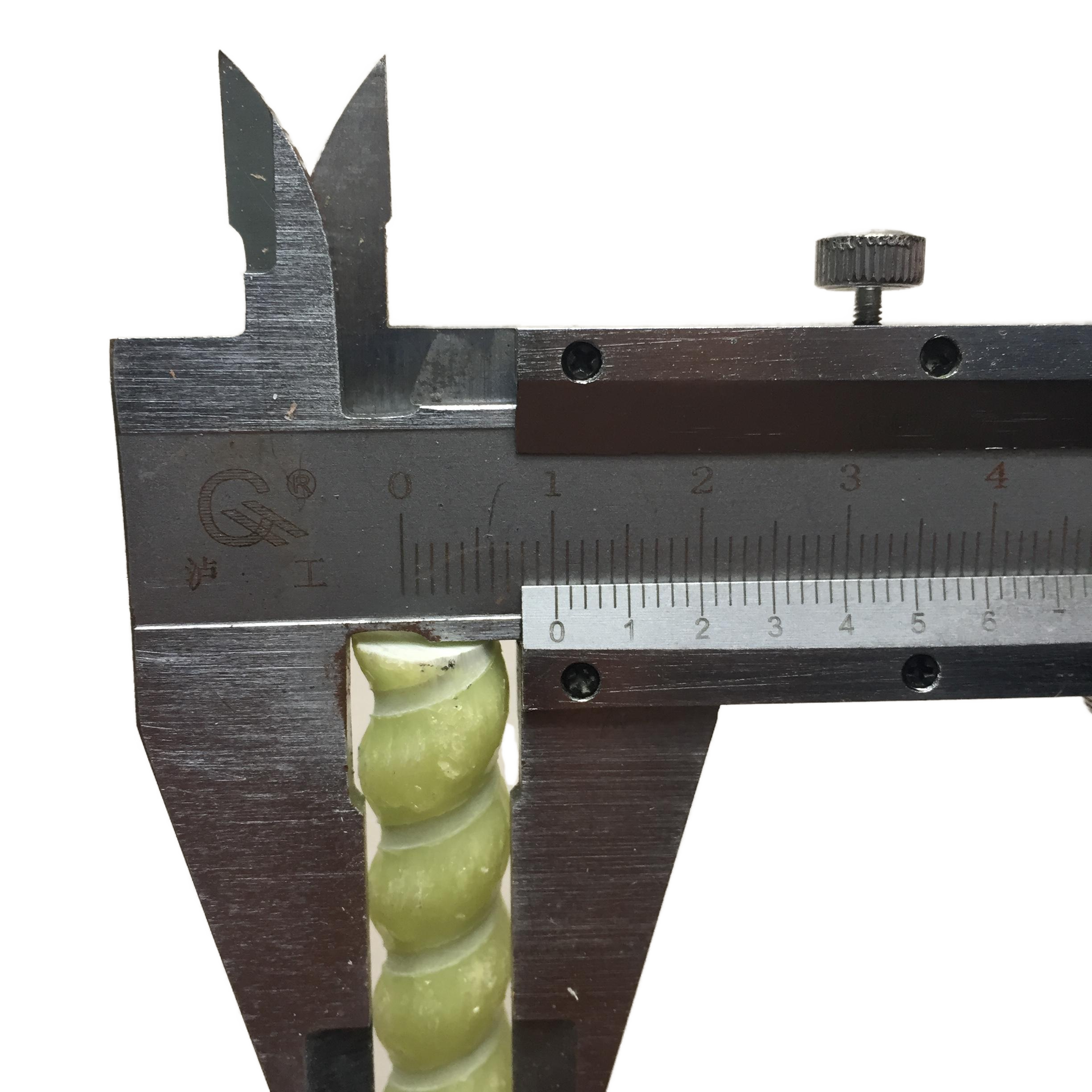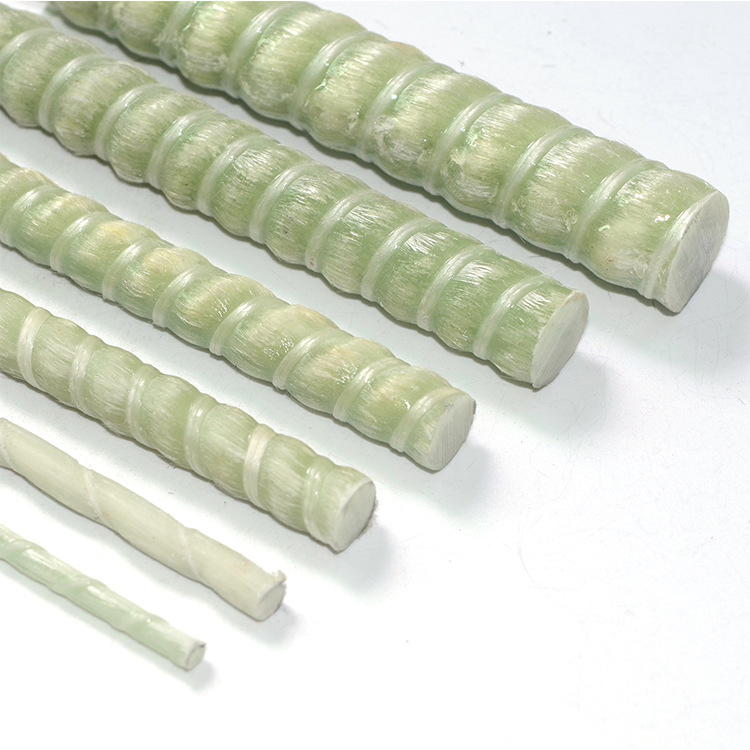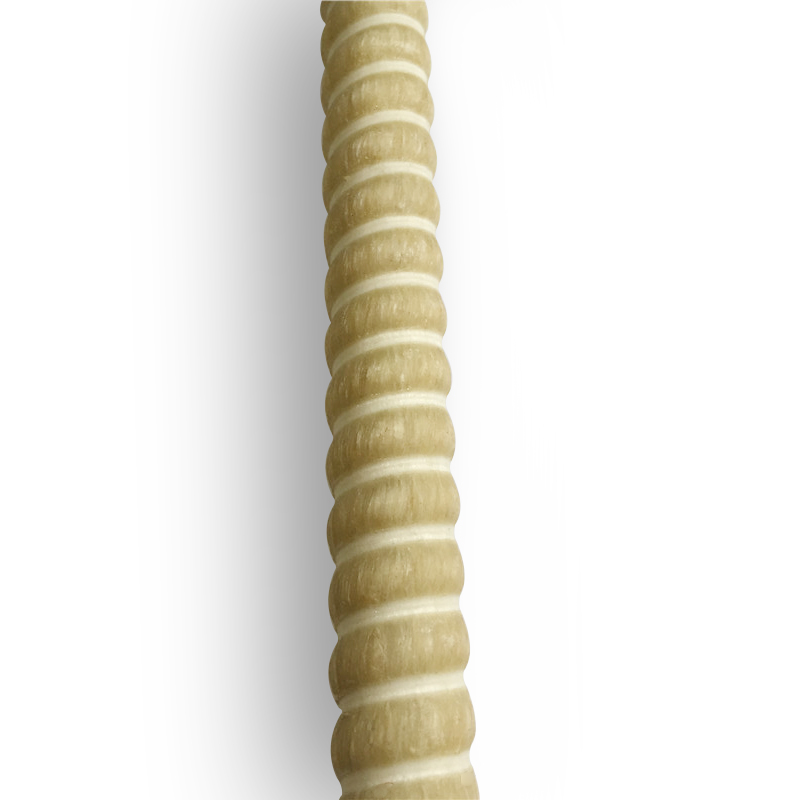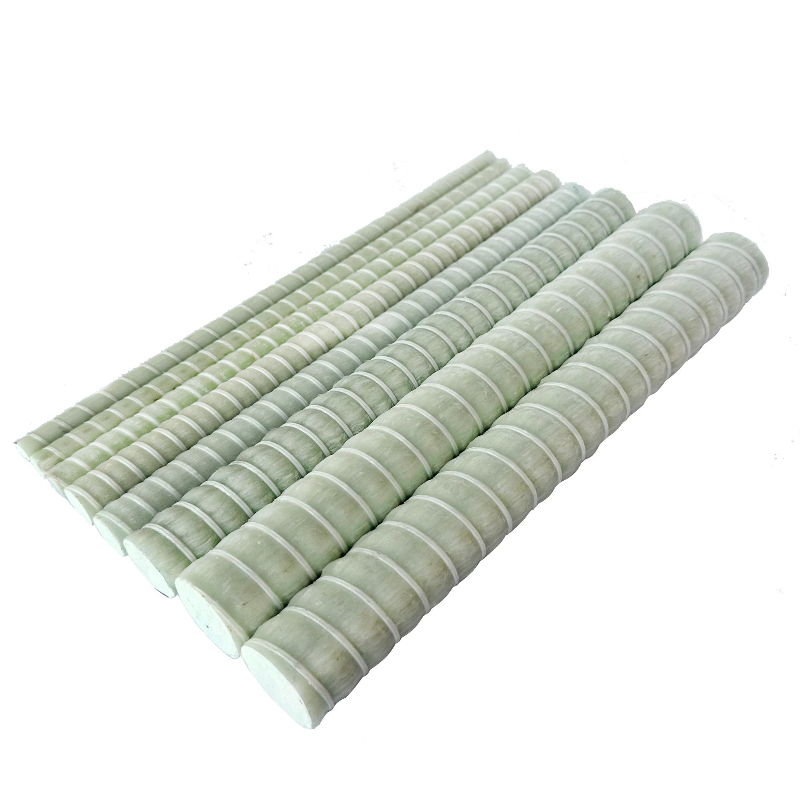Introduction
Fiberglass bolts have emerged as a revolutionary alternative to traditional steel bolts in various engineering and construction applications. Their unique properties, such as high strength-to-weight ratio, corrosion resistance, and electromagnetic transparency, make them ideal for specific environments where traditional materials fall short. This article delves into the intricate characteristics of fiberglass bolts, exploring their manufacturing processes, mechanical properties, and the breadth of their applications in modern engineering. By understanding the science behind fiberglass bolts, engineers and constructors can make informed decisions to enhance the structural integrity and longevity of their projects.
Manufacturing Processes of Fiberglass Bolts
The production of fiberglass bolts involves the pultrusion process, where continuous strands of fiberglass are impregnated with resin and pulled through a heated die to form the desired shape. This method ensures uniformity in the cross-sectional area and maintains the alignment of fibers along the bolt's axis, resulting in enhanced tensile strength. The choice of resin, typically epoxy or polyester, plays a crucial role in determining the bolt's thermal and chemical resistance.
Advancements in manufacturing technologies have also introduced the filament winding technique for producing hollow fiberglass bolts. This method involves winding resin-impregnated fiberglass filaments around a mandrel, allowing for customization in wall thickness and diameter. The filament winding process is particularly beneficial for applications requiring lightweight yet robust components, such as in aerospace and marine engineering.
Quality Control Measures
Ensuring the quality of fiberglass bolts is paramount for structural safety. Manufacturers implement rigorous testing protocols, including tensile strength tests, shear tests, and thermal cycling assessments. Non-destructive testing methods, such as ultrasonic scanning, are employed to detect internal defects or delaminations. Adherence to international standards, such as ASTM and ISO specifications, guarantees that the fiberglass bolts meet the required performance criteria for their intended applications.
Mechanical Properties and Advantages
Fiberglass bolts exhibit exceptional mechanical properties that make them suitable for challenging environments. Their high tensile strength, which can reach up to 1,000 MPa, rivals that of high-grade steel bolts while significantly reducing weight. The density of fiberglass bolts is approximately 1.9 g/cm³, compared to 7.85 g/cm³ for steel, resulting in substantial weight savings in large-scale structures.
Corrosion resistance is another critical advantage. Fiberglass bolts are impervious to chemical attack from a wide range of substances, including acids, alkalis, and salts. This property eliminates the need for protective coatings or cathodic protection systems required for steel bolts in corrosive environments, such as maritime or industrial settings.
Thermal and Electrical Insulation
The thermal conductivity of fiberglass bolts is significantly lower than that of metals, providing excellent thermal insulation properties. This characteristic is beneficial in applications where thermal bridging needs to be minimized, such as in building envelope systems using fiberglass bolts to connect insulation panels. Additionally, fiberglass bolts are non-conductive electrically, making them ideal for use in electrical infrastructure and environments where electromagnetic interference must be avoided.
Applications in Civil Engineering
In civil engineering, fiberglass bolts are increasingly used for soil stabilization, rock reinforcement, and anchoring systems. Their corrosion resistance enhances the longevity of structures like tunnels and retaining walls. For instance, the use of fiberglass bolts in soil nailing offers a durable solution that withstands aggressive soil conditions.
Moreover, fiberglass bolts are advantageous in reinforcement applications where magnetic transparency is required, such as in MRI facilities or laboratories. Their non-magnetic nature ensures that they do not interfere with sensitive equipment, maintaining the integrity of measurements and imaging.
Case Studies
Several infrastructure projects have successfully implemented fiberglass bolts. In the construction of coastal structures, fiberglass bolts have been used to mitigate the effects of saltwater corrosion. The glass fiber anchor cables provided secure anchorage while ensuring durability. Similarly, bridge decks reinforced with fiberglass bolts have demonstrated reduced maintenance costs over time due to their resistance to deicing chemicals and environmental degradation.
Challenges and Considerations
Despite the numerous advantages, the adoption of fiberglass bolts comes with challenges. One primary concern is the material's behavior under fire exposure. Fiberglass bolts can lose structural integrity at elevated temperatures, which necessitates careful consideration in designs where fire resistance is critical. Incorporating fire-resistant resins or protective coatings can mitigate this issue.
Another consideration is the connection detailing between fiberglass bolts and other structural elements. Due to differences in material properties between fiberglass and traditional construction materials, specialized fittings and installation techniques are required to ensure proper load transfer and structural performance.
Cost-Benefit Analysis
The initial cost of fiberglass bolts can be higher than that of conventional steel bolts. However, when conducting a life-cycle cost analysis, fiberglass bolts often prove to be more economical. The reduced maintenance requirements, extended service life, and prevention of corrosion-related failures contribute to lower long-term costs. Factors such as reduced downtime for repairs and the avoidance of catastrophic failures further justify the investment in fiberglass bolts for critical infrastructure.
Environmental Impact
The use of fiberglass bolts aligns with sustainable construction practices. Their longevity reduces the need for frequent replacements, minimizing resource consumption. Additionally, the production process of fiberglass bolts emits lower levels of greenhouse gases compared to steel production. Recycling and end-of-life disposal are areas currently under research, with developments aimed at enhancing the environmental friendliness of fiberglass materials.
Fiberglass bolts also contribute to energy efficiency in buildings by improving thermal insulation when used in conjunction with other insulating materials. This application helps reduce energy consumption for heating and cooling, aligning with global efforts to reduce carbon footprints.
Regulatory and Compliance Aspects
Compliance with building codes and engineering standards is essential when integrating fiberglass bolts into projects. Regulatory bodies have begun to recognize fiberglass bolts in their codes, but designers must ensure that their use is permissible within the jurisdiction of the project. Comprehensive testing data and certifications can support the acceptance of fiberglass bolts by authorities and stakeholders.
Advancements in Fiberglass Bolt Technology
Ongoing research and development are pushing the boundaries of fiberglass bolt capabilities. Innovations include hybrid composites that combine fiberglass with carbon fibers, enhancing mechanical properties while maintaining cost-effectiveness. Additionally, smart fiberglass bolts embedded with fiber optic sensors are being developed to monitor structural health in real-time, providing data on stress, strain, and environmental conditions.
Nanotechnology is also making inroads into fiberglass bolt manufacturing. Incorporating nanoparticles into the resin matrix can improve mechanical properties, fire resistance, and durability. These advancements open new possibilities for fiberglass bolts in high-demand applications such as aerospace, defense, and high-performance civil structures.
Educational and Training Initiatives
To facilitate the adoption of fiberglass bolts, educational programs for engineers and construction professionals are essential. Universities and industry organizations are offering courses and workshops focused on the design, testing, and application of composite materials, including fiberglass bolts. Knowledge dissemination ensures that professionals can competently specify and utilize these materials in their projects.
Conclusion
Fiberglass bolts represent a significant advancement in construction materials, offering solutions to many limitations associated with traditional bolting methods. Their superior properties, such as corrosion resistance, high strength-to-weight ratio, and non-conductivity, make them suitable for a wide array of applications. While challenges exist, particularly concerning fire resistance and initial costs, the overall benefits position fiberglass bolts as a viable and often superior alternative to steel bolts.
As the industry continues to evolve with technological advancements, the role of fiberglass bolts is expected to expand further. Embracing these innovative materials will require collaboration among manufacturers, engineers, educators, and regulatory bodies. By doing so, the construction and engineering sectors can enhance structural performance, extend the lifespan of infrastructure, and contribute to sustainable development goals.
For detailed specifications and applications of fiberglass bolts, professionals can refer to our product catalog or contact our technical support team for personalized assistance.












